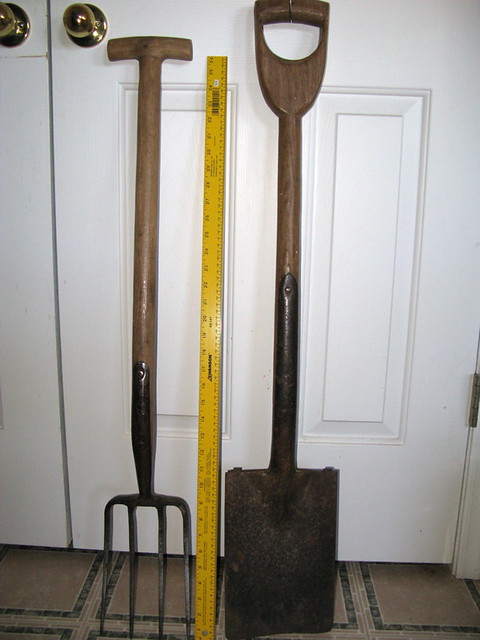I found this near-century-old English fork and spade at an antique dealer. Sheffield steel (I was told), smooth, well-worn ash handles (T-handle on the fork, D-handle on the spade). Well used -- nice to think of all the dirt and potatoes they turned in their time. Notice how short they are -- witness to generally shorter people in the 1920's? Or perhaps because they were made for small, kitchen gardens, a step up from hand tools? I won't use them, but will clean them (probably leave the crumbs of English soil lodged in the top of the spade blade around the handle), oil the wood, and hang them on the wall as a silent testament to man's first pleasurable occupation: keeping the Garden. And the wounds on the wood and metal as a grievous testament to man's second, harder challenge: coaxing "plants of the field" by "painful toil" in competition with the "thorns and thistles," out of a cursed landscape. I will pretend my maternal English Blackburn/Draper ancestors used them for fun and profit.

Stamp on the fork: "Brades Skelton, Made in England"
Stamped on the spade: "Made in England, Parkes Diamond Steel"
No comments:
Post a Comment